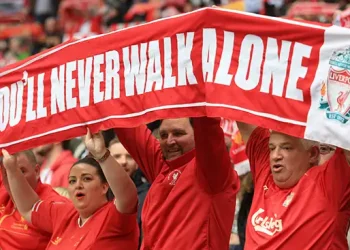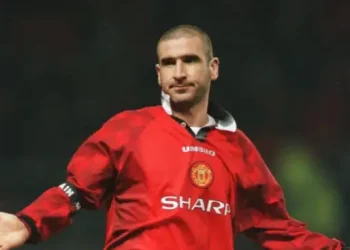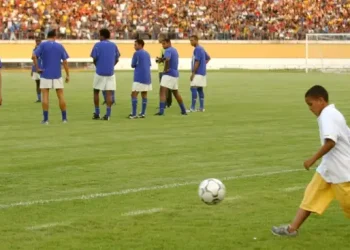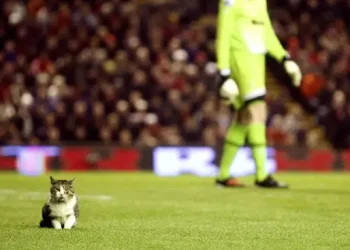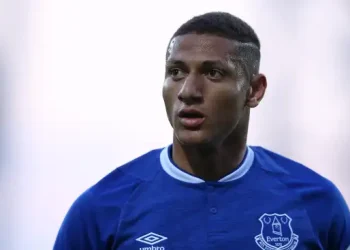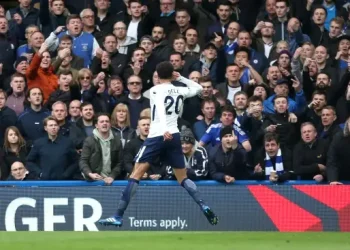Footballers are some of the fittest athletes on the planet. But with all the pressure, packed schedules, and the constant need to perform, it’s not surprising that some players end up in hot water over banned substances — sometimes by accident, sometimes… not so much.
Whether it was a case of dodgy supplements, honest mix-ups, or momentary lapses in judgment, these stars all had a brush with football’s anti-doping rules. Let’s take a look at nine memorable cases — no judgment here, just stories that remind us even the pros are human.
1. Mykhailo Mudryk – Shock, Suspicion & Still Waiting
In late 2024, Chelsea winger Mykhailo Mudryk was provisionally suspended after testing positive for meldonium, a banned substance. He denied any wrongdoing, claiming he was blindsided by the results, and suggested the cause might have been contaminated supplements. To back it up, reports say he even passed a lie detector test — not something you hear every day in football. The FA officially charged him in June 2025, and he now faces a potential four-year ban, although he’s hired the same legal team that helped reduce Paul Pogba’s suspension. For now, he’s been frozen out of Chelsea’s squad, but the case is ongoing — and fans are waiting to see whether it ends in redemption or a lengthy timeout.
2. Paul Pogba – Testosterone Trouble
After a routine post-match drug test in August 2023, Paul Pogba was found to have elevated testosterone levels. Cue the alarm bells.
Further testing confirmed it, and the Juventus midfielder was initially handed a four-year ban. That was later reduced to 18 months, meaning he’ll be eligible to play again from March 2025. A tough chapter for a World Cup winner, but he’s still got time to bounce back.
3. Edgar Davids – A Bump in the Road
Known for his boundless energy and iconic goggles, Edgar Davids was a beast in midfield. But in 2001, he tested positive for nandrolone — one of several players in Serie A that year to do so.
He faced a second positive test a few months later and was hit with a 16-month ban, though he ultimately served just four months. It didn’t stop him from continuing his career, and he remains a legend in Dutch football.
4. Mark Bosnich – A Difficult Period
Bosnich’s positive test for cocaine in 2002 was a turning point in his career. After joining Chelsea, things didn’t go quite as planned, and the failed drug test led to a long break from football.
The Australian goalkeeper later opened up about his struggles and managed to overcome them, eventually making a return to the game. His comeback story is actually pretty inspiring.
5. Abel Xavier – A Premier League First (Not in a Good Way)
Abel Xavier became the first Premier League player banned for using performance-enhancing drugs in 2005. He tested positive for dianabol, a type of anabolic steroid, shortly after joining Middlesbrough.
He maintained that the substance came from antiviral medication he took in the U.S., and his 18-month ban was later reduced to 12. Definitely not the kind of record any player wants to set, but he served his time and moved on.
6. Frank de Boer – Caught Out in Spain
De Boer tested positive for nandrolone in 2001 after a UEFA Cup match between Barcelona and Celta Vigo. The initial punishment? A one-year ban.
However, it was later ruled that he had unknowingly ingested the substance through contaminated supplements, and the suspension was reduced to just 11 weeks. An unfortunate situation, but not one born from ill intent.
7. Adrian Mutu – A Career Cut Short at Chelsea
Romanian striker Adrian Mutu had a promising start at Chelsea, but in 2004, he tested positive for cocaine and received a seven-month ban.
It was a sad end to his time in London, especially after a bright first season. Mutu continued his career elsewhere, but this incident is still one of the most talked-about drug-related moments in Premier League history.
8. Jaap Stam – Another Serie A Casualty
In 2001, Jaap Stam — one of the fiercest defenders of his era — also tested positive for nandrolone while at Lazio.
He received a five-month ban, which was later reduced to four. Like many others at the time, he claimed the substance came from contaminated supplements. Still, it was a frustrating moment in an otherwise rock-solid career.
9. Andre Onana – The Unfortunate Mix-Up
In 2021, Andre Onana tested positive for Furosemide, a banned substance. He explained that he had accidentally taken some of his wife’s medication — an easy enough mistake, especially when you’re not double-checking labels.
UEFA believed it wasn’t intentional, and while he was initially banned for 12 months, the suspension was later shortened to nine. A frustrating moment for the Cameroonian keeper, but he handled it with dignity.
10. Diego Maradona – The Legend’s Troubled Battles
Maradona’s talent on the pitch was otherworldly — but off it, his struggles with substances were widely known. He tested positive for cocaine while at Napoli in 1991, and later, at the 1994 World Cup, for ephedrine.
The latter incident led to him being sent home from the tournament, effectively ending his international career. Despite the controversy, Maradona remains one of the greatest ever — a reminder that genius often comes with complexity.
Final Thoughts
These stories show that even football’s brightest stars can stumble. Whether it was a mistake, a misjudgment, or something more serious, each of these cases had real consequences. But many of these players came back stronger, proving that redemption is always possible — even after a red card from the doping board.

